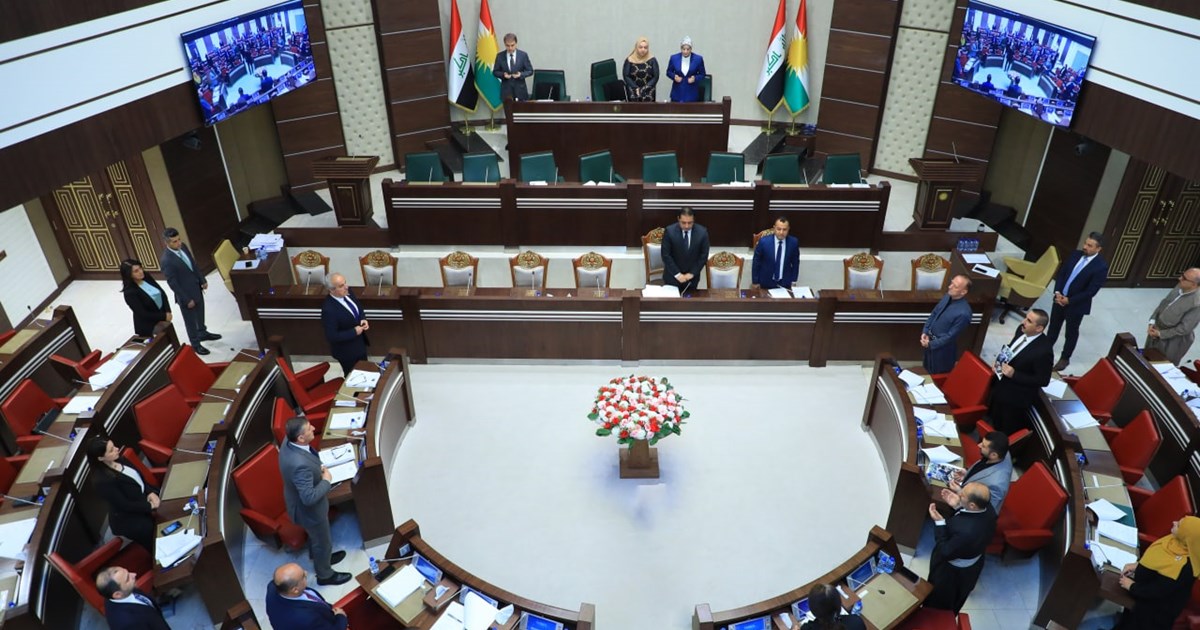Parliament reads articles 38 to 60 of Bill on Education and Training; expresses condolences for death of five Peshmerga in road traffic accident

At Kurdistan Parliament’s sitting of 2 October 2022, Speaker Dr. Rewaz Faiq on behalf of Parliament expressed condolences for the tragic death of five Peshmerga soldiers in a road traffic accident in the southeast of Slemani governorate. MPs continued the second reading of the Bill on Education and Training, reading articles 38 to 60.
Speaker Faiq presided over the sitting, with Deputy Speaker Dr. Hemin Hawrami and Secretary Muna Kahveci alongside her.
Speaker Faiq said, “On behalf of the Kurdistan Parliament, I express my deepest sympathy to the families of the five Peshmerga tragically killed [in a road accident] when coming home from duty. We share their grief, and ask God to give them strength and comfort. May the Peshmerga rest in peace.”
The MPs held a minute’s silence for the Peshmerga and all victims of road traffic accidents.
MPs stressed the need to build and complete the main roads between governorates and independent administrations, and said that the poor state of the existing roads leads to avoidable deaths and injuries.
In the presence of the KRG Education Minister Alan Hama Saeed, the education and legislative committees first read articles 38 to 42 of the Bill on Education and Training, which are the provisions on specialist schools (for example specializing in arts, music, sport or other subjects), schools for gifted students, enrollment and assessments for student enrollment, students returning from abroad, the right to transfer students, and unacceptable actions or behavior in any educational institution or establishment.
After the break, Parliament continued reading the bill, from articles 43 to 60, on unacceptable actions or behavior in education institutions, the numbering of the education cycles, stages and grades, basic principles on buildings and libraries in education institutions, parents’ councils and student development meetings, state education institutions’ document records, school shops and cafeterias in state education institutions, joint and supported state education institutions (with local or international partners), evening schools, non-compulsory education (for those above compulsory school age; i.e. adult education), external exams, accelerated learning (for school-age students who missed some years of school) and its levels, and ending illiteracy.
Minister Alan Hama Saeed and the education and legislative explained some points in response to MPs’ comments and questions about those articles.























